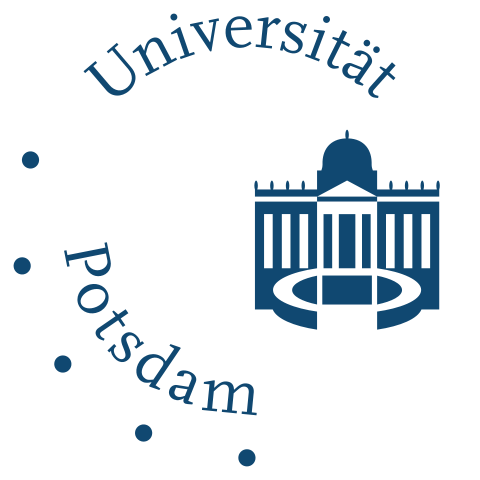Argument mining (also known as “argumentation mining”) is a young and gradually maturing research area within computational linguistics. At its heart, argument mining involves the automatic identification of argumentative structures in free text, such as the conclusions, premises, and inference schemes of arguments as well as their interrelations and counter-considerations. To date, researchers have investigated argument mining on genres such as legal documents, product reviews, news articles, online debates, user-generated web discourse, Wikipedia articles, academic literature, persuasive essays, tweets, and dialogues. Recently, also argument quality assessment and generation came into focus. In addition, argument mining is inherently tied to stance and sentiment analysis, since every argument carries a stance towards its topic, often expressed with sentiment.
Argument mining gives rise to various practical applications of great importance. In particular, it provides methods that can find and visualize the main pro and con arguments in a text corpus — or even on in an argument search on the web — towards a topic or query of interest. In instructional contexts, written and diagrammed arguments represent educational data that can be mined for conveying and assessing students’ command of course material. In information retrieval, argument mining is expected to play a salient role in the emerging field of conversational search. And with the IBM Debater Project, technology based on argument mining recently received a lot of media attention.
While solutions to basic tasks such as component segmentation and classification slowly become mature, many tasks remain largely unsolved, particularly in more open genres and topical domains. Success in argument mining requires interdisciplinary approaches informed by NLP technology, theories of semantics, pragmatics and discourse, knowledge of discourse in application domains, artificial intelligence, information retrieval, argumentation theory, and computational models of argumentation.
Call for Papers
ArgMining 2021 invites the submission of long and short papers on substantial, original, and unpublished research in all aspects of argument mining. The workshop solicits LONG and SHORT papers for oral and poster presentations, as well as DEMOS of argument/argumentation mining systems and tools.
The topics for submissions include but are not limited to:- Automatic identification of argument components (e.g., premises and conclusions), and relations between arguments (e.g., support and attack) in as well as across documents
- Automatic assessment of properties of arguments and argumentation, such as argumentation schemes, stance, quality, and persuasiveness
- Creation and evaluation of argument annotation schemes, developing automatic and semi-automatic argument annotation methods and tools, and building high-quality annotated datasets, benchmarks, and Knowledge graphs
- Automatic retrieval, summarization, and generation of arguments
- Applications of argument mining and computational argumentation to various domains and data such as social sciences and humanities texts, legal and technical documents, scientific papers, news corpora, Wikipedia articles, consumer reviews, user-generated content, and students’ written essays.
This year, the workshop plans to have a joint session with the workshop CODI (Computational Approaches to Discourse). Submissions that address argumentation from an angle that overlaps with discourse structure phenomena will be considered for that session. (Authors may but need not make this potential overlap explicit)
Submission Information
Three types of papers can be submitted: Long papers (8 pages + references), short papers (4 pages + references), and demo papers (4 pages + references). Demo papers must include a URL to a running demo. Accepted papers will be given an additional page to account for the reviewers' comments. All papers will be treated equally in the workshop proceedings. The workshop follows ACL’s policies for submission, review, and citation. Moreover, authors are expected to adhere to the ethical code set out in the ACL Code of Ethics. Submissions that violate any of the policies will be rejected without review.Please use the EMNLP 2021 style sheets for formatting your paper: https://2021.emnlp.org/
Submission URL: https://www.softconf.com/emnlp2021/ArgMining/
The workshop is running a double-blind review process. In preparing your manuscript, do not include any information which could reveal your identity, or that of your co-authors. The title section of your manuscript should not contain any author names, email addresses, or affiliation status. If you do include any author names on the title page, your submission will be automatically rejected. In the body of your submission, you should eliminate all direct references to your own previous work. That is, avoid phrases such as "this contribution generalizes our results for XYZ". Also, please do not disproportionately cite your own previous work. In other words, make your submission as anonymous as possible. We need your cooperation in our effort to maintain a fair, double-blind reviewing process - and to consider all submissions equally. Double Submission Papers that have been or will be submitted to other venues should indicate this at submission time. Upon acceptance at either event, the submission must be withdrawn from the other. To save reviewers' efforts, avoid submitting (or withdraw early) papers that are on track to be accepted elsewhere.
Shared Tasks
ArgMining 2021 includes the following shared tasks:
For detailed information about the tasks, data, evaluation, and organisers, please see the shared tasks page.
Important Dates
- Submission due: August 20, 2021 **Extended Deadline**
- Notification of acceptance: September 15, 2021
- Camera-ready papers due: September 23, 2021
- Workshop: November 10-11, 2021
Program
- Schedule
- Keynote Speakers
- Panelists
Schedule
| November 10, 2021 | |||
| 09:15 – 09:30 | Opening Remarks | ||
| 09:30 – 10:30 | Invited Talk: Towards Computational Persuasion for Behaviour Change Applications by Anthony Hunter | ||
| 10:30 – 11:00 | Coffee Break | ||
| 11:00–12:00 | Session 1 | ||
| 11:00 – 11:20 | long | Argument Mining on Twitter: A Case Study on the Planned Parenthood Debate | |
| Muhammad Mahad Afzal Bhatti, Ahsan Suheer Ahmad and Joonsuk Park | |||
| 11:20 – 11:40 | long | Multi-task and Multi-corpora Training Strategies to Enhance Argumentative Sentence Linking Performance | |
| Jan Wira Gotama Putra, Simone Teufel and Takenobu Tokunaga | |||
| 11:40 – 12:00 | long | Explainable Unsupervised Argument Similarity Rating with Abstract Meaning Representation and Conclusion Generation | |
| Juri Opitz, Philipp Heinisch, Philipp Wiesenbach, Philipp Cimiano and Anette Frank | |||
| 12:00 – 13:00 | Lunch Break | ||
| 13:00 – 16:45 | Session 2 | ||
| 13:00 – 13:20 | finding | Knowledge-Enhanced Evidence Retrieval for Counterargument Generation | |
| Yohan Jo, Haneul Yoo, JinYeong Bak, Alice Oh, Chris Reed and Eduard Hovy | |||
| 13:20 – 13:40 | finding | On Classifying whether Two Texts are on the Same Side of an Argument | |
| Erik Körner, Gregor Wiedemann, Ahmad Hakimi, Gerhard Heyer and Martin Potthast | |||
| 13:40 – 13:52 | short | Multilingual Counter Narrative Type Classification | |
| Yi-Ling Chung, Marco Guerini and Rodrigo Agerri | |||
| 13:52 – 13:04 | short | Predicting Moderation of Deliberative Arguments: Is Argument Quality the Key? | |
| Neele Falk, Iman Jundi, Eva Maria Vecchi and Gabriella Lapesa | |||
| 14:04 – 14:16 | short | Self-trained Pretrained Language Models for Evidence Detection | |
| Mohamed Elaraby and Diane Litman | |||
| 14:16 – 14:28 | short | Multi-task Learning in Argument Mining for Persuasive Online Discussions | |
| Nhat Tran and Diane Litman | |||
| 14:30 – 14:45 | Coffee Break | ||
| 14:45 – 16:15 | Panel Talks and Discussion | ||
| 16:15 – 16:45 | Coffee Break | ||
| 16:45–17:45 | Session 3 | ||
| 16:45 – 17:05 | long | Image Retrieval for Arguments Using Stance-Aware Query Expansion | |
| Johannes Kiesel, Nico Reichenbach, Benno Stein and Martin Potthast | |||
| 17:05 – 17:25 | long | Is Stance Detection Topic-Independent and Cross-topic Generalizable? - A Reproduction Study | |
| Myrthe Reuver, Suzan Verberne, Roser Morante and Antske Fokkens | |||
| 17:25 – 17:45 | long | Exploring Methodologies for Collecting High-Quality Implicit Reasoning in Arguments | |
| Keshav Singh, Farjana Sultana Mim, Naoya Inoue, Shoichi Naito and Kentaro Inui | |||
| November 11, 2021 | |||
| 09:00 – 10:00 | Invited Talk: Convince Me If You Can: Natural Language Generation for Argumentation by Lu Wang | ||
| 10:00–11:00 | Session 4 | ||
| 10:00 – 10:20 | long | Assessing the Sufficiency of Arguments through Conclusion Generation | |
| Timon Gurcke, Milad Alshomary and Henning Wachsmuth | |||
| 10:20 – 10:40 | long | M-Arg: Multimodal Argument Mining Dataset for Political Debates with Audio and Transcripts | |
| Rafael Mestre, Razvan Milicin, Stuart E. Middleton, Matt Ryan, Jiatong Zhu and Timothy J. Norman | |||
| 10:40 – 11:00 | Coffee Break | ||
| 11:00–12:00 | Session 5 | ||
| 11:00 – 11:20 | long | Citizen Involvement in Urban Planning - How Can Municipalities Be Supported in Evaluating Public Participation Processes for Mobility Transitions? | |
| Julia Romberg and Stefan Conrad | |||
| 11:20 – 11:40 | long | Argumentation Mining in Scientific Literature for Sustainable Development | |
| Aris Fergadis, Dimitris Pappas, Antonia Karamolegkou and Haris Papageorgiou | |||
| 11:40 – 12:00 | long | Bayesian Argumentation-Scheme Networks: A Probabilistic Model of Argument Validity Facilitated by Argumentation Schemes | |
| Takahiro Kondo, Koki Washio, Katsuhiko Hayashi and Yusuke Miyao | |||
| 12:00 – 13:00 | Lunch Break | ||
| 13:00 – 14:30 | Shared Task Presentation | ||
| 14:30 – 14:45 | Break | ||
| 14:45 – 15:00 | IBM Debater API | ||
| 15:00 – 15:05 | Best Paper Announcement | ||
| 15:05 – 15:10 | Concluding Remarks | ||
* The schedule is based on the Atlantic Standard Time (Punta Cana, Dominican Republic (GMT-4)).
Keynote Speakers
Anthony Hunter

Anthony Hunter is a Professor of Artificial Intelligence in the Department of Computer Science, University College London. He is also Head of the Intelligent Systems Group, and Department Graduate Tutor. His research is in the area of machine reasoning which is a branch of artificial intelligence. Reasoning is a critically important faculty of human intelligence, and machine reasoning is concerned with capturing aspects of this for use in software.
Talk: Towards Computational Persuasion for Behaviour Change Applications.
The aim of behaviour change is to help people to change aspects of their behaviour for the better (e.g., to decrease calorie intake, to drink in moderation, to take more exercise, to complete a course of antibiotics once started, etc.). Recent developments in computational modelling of argument (a subfield of AI) are leading to technology for persuasion that can potentially be harnessed in behaviour change applications. Using this technology, a software system and a user can exchange arguments in a dialogue. So the system gains information about the user’s perspective, provides arguments to fill gaps in the user’s knowledge, and attempts to overturn misconceptions held by the user. Our work has focused on modelling the beliefs and concerns of the user, and harnessing these to make the best choices of move during the dialogue for persuading the user to change their behaviour. During this talk, the background to, and components of, our approach will be presented together with some promising preliminary results with participants.
Lu Wang

Lu Wang is an Assistant Professor of Computer Science and Engineering at University of Michigan. Lu's research is focused on natural language processing, computational social science, and machine learning. More specifically, Lu works on algorithms for text summarization, language generation, argument mining, information extraction, and discourse analysis, as well as novel applications that apply such techniques to understand media bias and polarization and other interdisciplinary subjects.
Talk: Convince Me If You Can: Natural Language Generation for Argumentation.
Understanding, evaluating, and generating arguments are crucial elements of the decision-making and reasoning process. A multitude of arguments and counter-arguments are constructed on a daily basis to persuade and inform us on a wide range of issues. However, constructing persuasive arguments is a challenging task for both human and computers, as it requires credible evidence, rigorous logical reasoning, and sometimes emotional appeals.
In this talk, I will introduce our neural network-based argument generation framework. Our two-step argument generation model separately tackles the challenges of content planning and surface realization, and can be optionally augmented with a powerful retrieval system. I then discuss how to extend the model to conduct dynamic content planning with mixed language models. We believe that the proposed argument generation framework will enable many compelling applications, including providing unbiased perspectives on complex issues, debate coaching, and essay writing tutoring. Our framework is also generic and has been applied to other text generation problems, e.g., writing news and Wikipedia articles.
Panelists
Anette Frank
Anette is the chair of Computational Linguistics at Heidelberg University. Her research focuses on discourse-oriented semantics using neural methods for advanced NLU tasks, such as reading comprehension, commonsense reasoning or argumentation analysis. Anette is especially interested in combining neural machine learning methods with linguistic modeling and knowledge representation, which she believes will make NLP systems more powerful and robust, and deeper in modeling Natural Language Understanding.
Topic: Using background knowledge for argumentation, with a focus on enthymeme reconstruction.Ivan Habernal
Ivan is the head of the Trustworthy Human Language Technologies group at TU Darmstadt. His current research areas include legal argument mining, privacy-preserving NLP, and explainable and trustworthy models. Ivan's research track spans argument mining and computational argumentation, crowdsourcing, large-scale corpora, serious games, sentiment and sarcasm on social media, and semantic web.
Topic: When arguments really matterGabriella Lapesa
Gabriella leads the independent research group E-DELIB at the University of Stuttgart. Broadly speaking, Gabriella is a computational linguist with a strong interest in the applications of NLP in interdisciplinary settings. Her domains of interest are Political Science (i.e., supporting decision-making in forums with NLP; capturing the dynamics of political debates based on newspaper reports), cognitive modeling (i.e., prediction of priming or and free associations), and theoretical linguistics (i.e., semantics of morphological derivation).
Topic: Argument mining for social goodHenning Wachsmuth
Henning is the chair of the Computational Social Science group at Paderborn University. Among the main research topics of his group are the computational analysis and synthesis of argumentation, the detection and mitigation of social bias and media bias in text, and the construction of human-like explanations in educational and explainable artificial intelligence.
Topic: Argument qualityCommittee
Organizing Committee
Program Committee
- Stergos D. Afantenos, Université Paul Sabatier
- Milad Alshomary, Paderborn University
- Kevin Ashley, University of Pittsburgh
- Roy Bar-Haim, IBM Research AI
- Miriam Butt, University of Konstanz
- Elena Cabrio, CNRS, Inria, I3S
- Shohreh Haddadan, University of Luxembourg
- Christopher Hidey, Google
- Xinyu Hua, Bloomberg LP
- Yohan Jo, Amazon
- Christopher Klamm, Technische Universitat Darmstadt
- Gabriella Lapesa, University of Stuttgart
- Anne Lauscher, University of Mannheim
- John Lawrence, University of Dundee
- Diane Litman, University of Pittsburgh
- Elena Musi, Columbia University
- Alexis Palmer, University of Colorado
- Joonsuk Park, University of Richmond
- Simon Parsons, King's College London
- Georgios Petasis, NCSR Demokritos
- Olesya Razuvayevskaya, European Bioinformatics Institute
- Chris Reed, University of Dundee
- Patrick Saint-Dizier, IRIT - CNRS
- Jodi Schneider, University of Illinois at Urbana Champaign
- Benno Stein, Bauhaus-Universitat Weimar
- Shahbaz Syed, Leipzig University
- Nicolas Turenne, UMR LISIS (INRA,UPEM,CNRS)
- Serena Villata, CNRS
- Henning Wachsmuth, Paderborn University
- Vern R. Walker, Maurice A. Hofstra University
- Zhongyu Wei, Fudan University
- Magdalena Wolska, Bauhaus-Universitat Weimar
Past Workshops
Past Workshops
ACL Anti Harassment Policy
We abide by the ACL anti-harassment policy.




